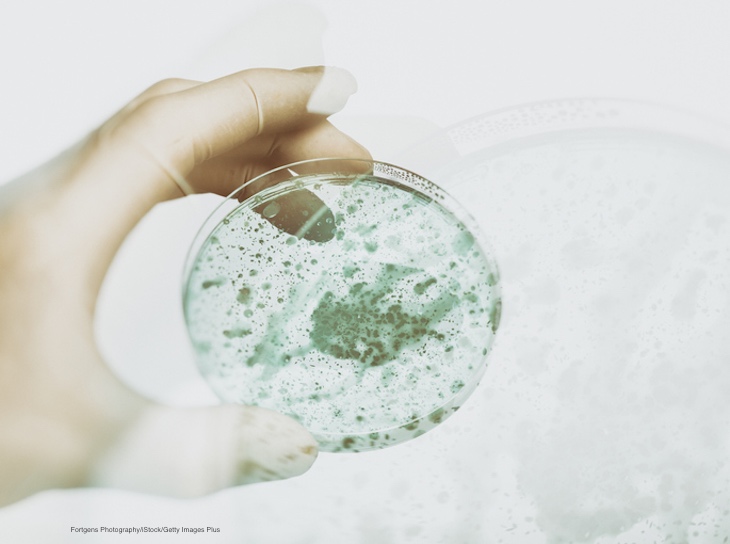Listeria monocytogenes is a foodborne pathogen that can make you seriously ill. Listeria monocytogenes infections are tricky, because the symptoms may not show up until 70 days after a person has been exposed. And the symptoms of this infection are similar to the flu, especially in pregnant women, so diagnosis can be difficult.

About 1,600 people contract Listeria infections every year in the United States. About 260 of those patients die.
Listeriosis is a reportable illness. That means when a person is diagnosed with a Listeria monocytogenes infection, their doctors must report it to the government. The genetic information about the pathogen that made that person sick is recorded in PulseNet, a nationwide network of laboratories that keep information about pathogens. In fact, that’s how most Listeria monocytogenes food poisoning outbreaks are discovered: researchers find people infected with a specific genetic makeup of this pathogen and piece an outbreak together.
And this illness is serious. The death rate for this infection is 20%. Patients who recover from this infection can have long term complications. Listeria monocytogenes outbreaks are usually small, with a few to 12 people sickened.
Even though it may take 70 days for listeriosis symptoms to manifest, most people get sick within a few weeks of exposure. That still makes things tricky. Even though we know that the last food you ate most likely didn’t cause your illness, most people don’t remember what they ate for dinner last Friday, let alone weeks or months ago.
The classic early symptoms of listeriosis are nausea and diarrhea. If the illness progressed to a more serious form if the bacteria get into the bloodstream, patients experience a stiff neck, high fever, severe headache, muscle aches, diarrhea, and abdominal cramps. The people who get the sickest are the very young, the elderly, people with chronic illnesses, and those with compromised immune systems. This illness is diagnosed from samples taken from the body, such as spinal fluid, blood, or tissue from the placenta.
Pregnant women comprise a special class of listeriosis patients. For these women, symptoms are similar to the classic flu, with body aches, fever, headache, nausea, and vomiting. Symptoms may be mild. But these women can suffer serious complications from a Listeria monocytogenes infection, including miscarriage, stillbirth, premature labor, and infection of the newborn.
Doctors aren’t sure exactly why listeriosis in pregnant women is so devastating. There are several theories. One is that the pregnant woman’s immune system is suppressed so the embryo isn’t rejected. Another is that the pathogen uses this suppression to invade the placenta, where they grow. Miscarriage may be the body’s defense against this infection.
In past listeriosis outbreaks, pregnant women and their fetuses have been victims of contaminated food. One of the worst was the outbreak in 2015 that was linked to prepared caramel apples. In that outbreak, which was linked to Bidart Brothers Gala and Granny Smith apples, 35 people were sickened and seven died. Eleven cases were associated with pregnancy. There were three premature births and one fetal loss.
To make matters worse, Listeria monocytogenes bacteria is very persistent in the environment. Once the bacteria is established, especially in a moist or wet environment, it can be very difficult to eradicate. The pathogen can grow at refrigerator temperatures, and freezing doesn’t destroy it. Typical cleaning solutions may be ineffective.
The best way to protect yourself against a Listeria monocytogenes infection is to know the symptoms and to keep up with food recalls. There are recalls of foods for Listeria contamination every month. The foods that have been associated with this pathogen are typically ready-to-eat foods such as caramel apples, deli meats, hot dogs, melons, soft cheeses, raw sprouts, smoked seafood, ice cream, and raw milk and dairy products.
So if you become ill with a stiff neck or fever, see your doctor as soon as possible. All pregnant women should avoid foods that can be associated with this pathogen, and contact their doctor immediately if they think they have the flu. This illness is treatable with antibiotics.




